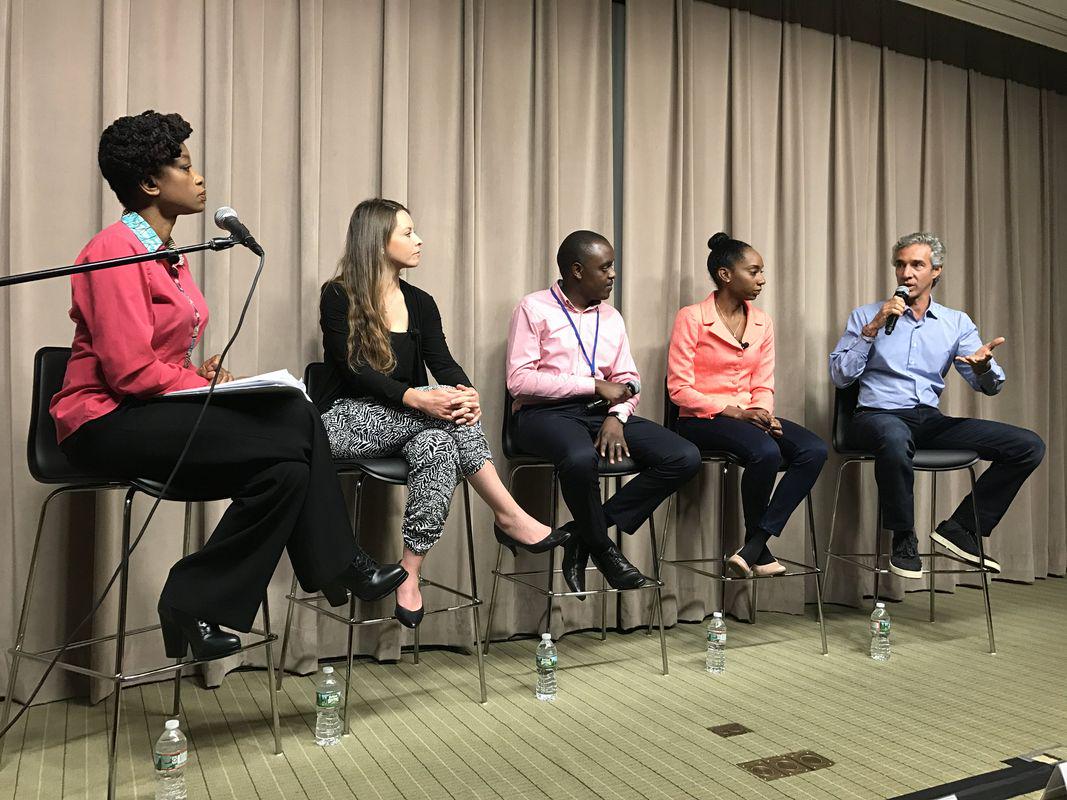The World Bank celebrated the 2017 World Food Day, which is on October 16, with young farmers who try to feed the world and improve food security with innovation, collaboration and hard work. Hence this international financial institution, based in Washington D. C., offers developing countries financial and technological aid for development programmes aiming to decrease poverty, hosted an event where the floor was given to young farmers who communicated with their stories that new technologies and innovations encourage changes in agriculture and create opportunities for young people.
Amongst the speakers was Shelly-Ann from Jamaica, who had to take over the family poultry farm at the age of 20, as her mother fell sick after Hurricane Sandy. The farm was completely destroyed, but Shelly-Ann managed to gain the bank's trust and secured a loan for rebuilding her farm. She and her eight employees manage the farm, which produces one million chickens a year. Shelly-Ann lowered her production costs by using solar panels on the farm.
Brian Ndyaguma is an entrepreneur who grows vegetables for his restaurant in Uganda. During his studies, Brian sold eggs to pay his fees. He started urban farming less than one year ago. He recommends collaboration with other people to overcome the lack of resources, a problem common to many young people. Because of his experience from Kampala, he favours a three-participants group: one with an initial idea and the other two with specialised knowledge for improving soil quality and successful vegetable production.
Globally successful young farmers were presented by former Formula 1 race car driver, Pedro Diniz, founder and CEO of an extensive organic farm in Brazil. When he ended his professional Formula 1 race car driver career, Pedro fell in love with his family farm. His parents bought it in 1970, on the day Pedro was born. Since his return to the farm, Pedro introduces profitable agroforesting approaches in food production, based on 'natural intelligence'. As an example of this, he mentioned a sort of grass which farmers usually try to quell its growth, but it can also serve as a very efficient food for trees. He wants more research on agroecology to allow agriculture to restore the planet, not degrade it.
As was established at the event, agriculture is no exception regarding gender inequality. Nevertheless, young female transferees persistently break down stereotypes by taking over their family farms and managing agricultural companies. Key for young farmers is cooperation, whole internet platforms can help them to connect and exchange information.





























































